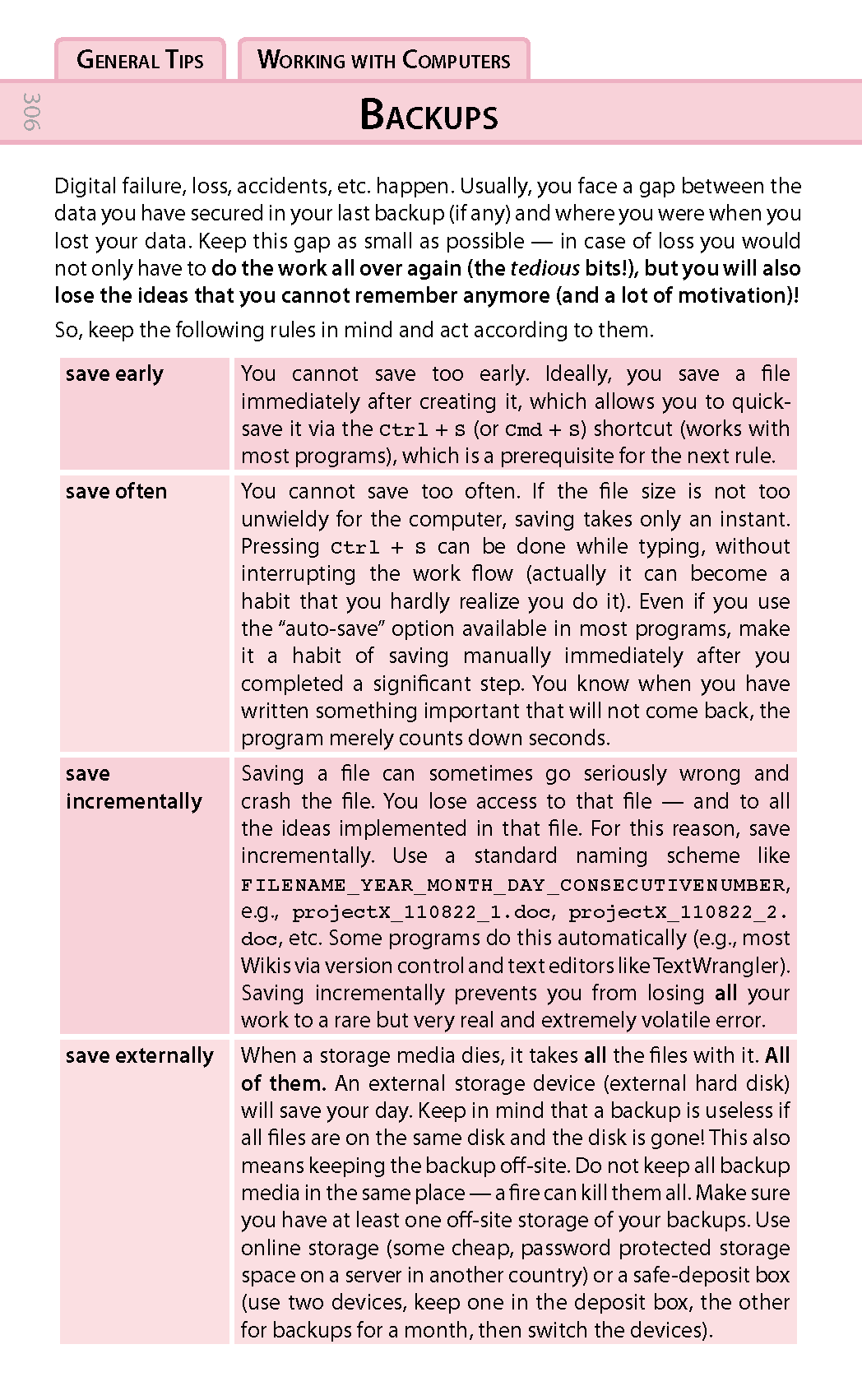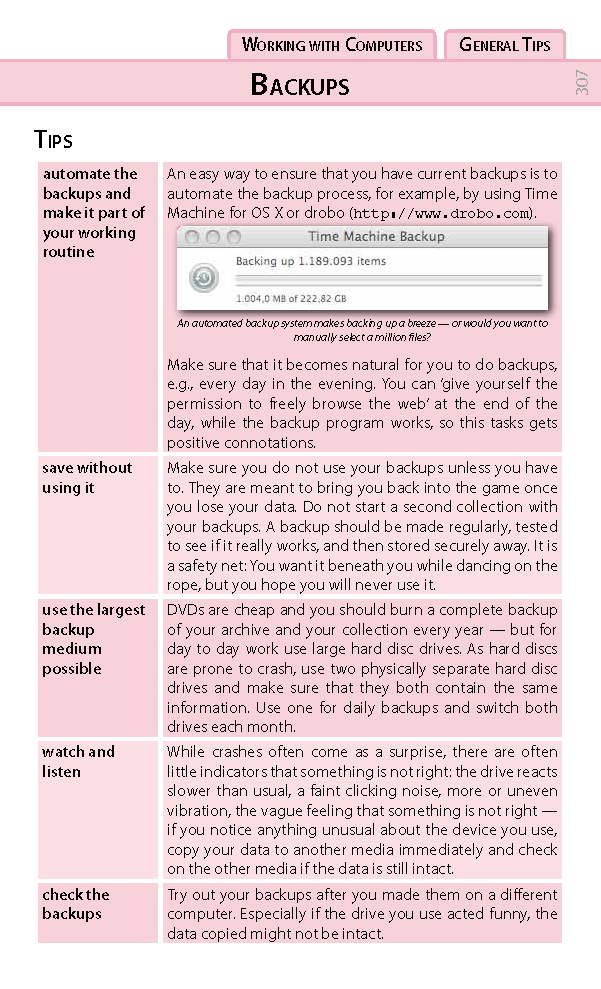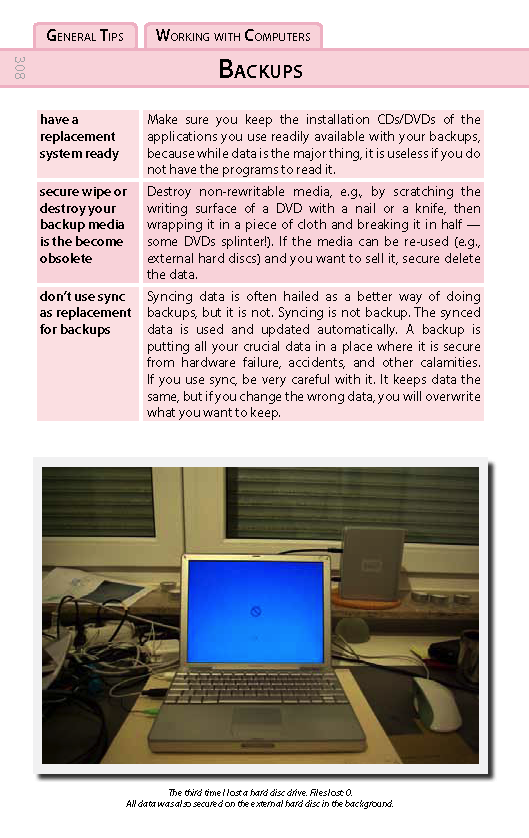Being a Mac user is like being a Navy SEAL: a small, elite group of people with access to the most sophisticated technology in the world, who everyone calls on to get the really tough jobs done quickly and efficiently.
Unknown
Mac Power Users did a podcast about the worst case scenarios that can happen on the computer — as the name says, specifically when using a Mac. Times have changed since the quotation above — Macs have gone mainstream, the user base is far broader, and it’s much more profitable now than ever to write malware for the Mac.
It strikes a chord, given that most of my possessions (books, movies) and works (books and other … stuff) are digital, so a lightning could kill all my data (but then again, it could kill me as well ;-)). So I’m into backups and risk prevention and found the podcast well-worth listening to (not much new for me, but it reminded me of a few things).
And yeah, with digital, an ounce prevention is worth … well, giving that your data can vanish, what’s the price you put on it? Especially if you are working on things you cannot recreate and would have to do all over again, like a book, or a thesis?
Personally, I highly recommend adhering to the following backup rules, burn occasional ‘savepoints’, and in general be careful what you trust.
Backup Rules
I have written a bit about backups in the “Organizing Creativity” book, see the pages here (click to enlarge, sorry for the quality, check the freely available PDF, there’s also more in it, e.g., regarding theft and loss):
 |
 |
 |
In addition to:
- save early
- save often
- save incrementally, and
- save externally
I would add three additional things today:
- First to keep the prior backups. Do not discard them. If there’s an error with a file and you don’t use that file for a while, you might not notice that it is broken. The broken file might end up on backup after backup. So keep the old storage media and occasionally manually check that your most important files are still working. This is especially relevant for Circus Ponies Notebook files.
- Second, you need more than one backup and they have to be on different backup mediums. Harddisks can fail. One person — forgotten who — wrote that having one backup is like having none, having two is like having one, etc. I’d use the same calculation but not count the TimeMachine backup. After all, the TimeMachine backup is the most frequently used and the most current, but probably not the most reliable when it comes to longevity.
- Third, never place all your backups in one location. It doesn’t matter whether it’s a fire, a flood, an earthquake, a thorough thief (or the police with a warrant after a false accusation), or whatever. Follow the motivation for space exploration: Putting all your eggs into one basket is a really bad idea. Personally, I recommend a safe deposit box at a bank. It’s easily available, yet much better protected.
Creating Savepoints
Savepoints are used in games as places to return to, when you die or fuck up the game later on. Personally, I think this is a nice concept to apply to backups and I started doing it at the end of last year. Just think about the most important files you have, the most important programs. Put all of these files on a backup medium and put it away. Don’t use it. It’s for the moment when something bad happens to your data. I used the last time I installed a new OS (Yosemite), giving that I do it from scratch. I had my data backed up anyway and I paid attention to which programs I needed to download again. That’s one savepoint right there.
Careful what you trust
You can make errors both ways. A long time ago, under the PC (an XT actually, way, way back), I cleaned up my hard disk by deleting every file I didn’t know. Made sense to me (then), given that I saw the PC like a box and if I didn’t put it in, I could remove it to get more space. With only 20 MB (yes, MB!) it made sense to delete as much as possible. Thing is, I didn’t know there was something like system files that were needed for the operating system to start … but I did learn … boy did I learn.
So as MPU said, if you look for malware, check online. You usually find other users with similar questions and people who can answer what that particular process or file is. I’d go for Apple/mac forums, they are usually trustworthy.